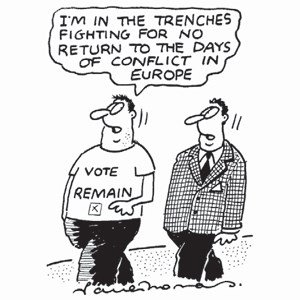‘Despite our separate identity, we are part of the whole’
‘Despite our separate identity, we are part of the whole’
 The Catholic Church values stability because it allows families and communities to grow. It is not just an economic good but one that strengthens society and alleviates suffering. When our society is riven by division based on ethnicity, wealth or political outlook – as it was in the 1930s and during the industrial unrest of the 1970s – it is the poor and vulnerable who suffer most. That is why unity and cooperation is so prized.
The Catholic Church values stability because it allows families and communities to grow. It is not just an economic good but one that strengthens society and alleviates suffering. When our society is riven by division based on ethnicity, wealth or political outlook – as it was in the 1930s and during the industrial unrest of the 1970s – it is the poor and vulnerable who suffer most. That is why unity and cooperation is so prized.
St John Paul II recognised this in his work to persuade Poland to join the EU. Having lived through the Second World War, he knew the consequence of violence on the weakest. Though he remained a stern critic of materialism in both the West and the Communist bloc, he saw cooperation as essential to a future which valued human dignity above the narrow competition for resources that had dominated his early life.
In his speech to the European Parliament in 2014, Pope Francis took up the same theme. While he attacked the EU for giving the impression that it regards the world with “aloofness, mistrust and even, at times, suspicion,” he saw its value too. He argued that cooperation provides a strength that allows each individual a greater freedom.
By sharing the burden of prosperity and security, self-expression is more, not less, possible. It is in diversity that human dignity can be nurtured. That is why Pope Francis warned against uniformity. “Authentic unity draws from the rich diversities which make it up: in this sense it is like a family, which is all the more united when each of its members is free to be fully himself or herself,” he said.
This duality – the strength of cooperation with the freedom of individuality – is at the heart of Roman theology because the Catholic Church is a communion of believers, not just a sacramental instrument. Salvation is achieved as a Church. Unity is also part of the tradition of social teaching because it protects the weak. The option for the poor, while not a political road map, is at the heart of the Christian message. Today, that means questioning what our continent would look like were we to vote to leave. The consequences are not predictable.
Cardinal Vincent Nichols was insightful at the launch of the referendum campaign when he said, “To start down the path of division almost inevitably leads to further division … So the Catholic instinct is to look for the whole”. No one can know where the unravelling may end, with even our own national union in question. Referendums in other states may follow, leading to a breakdown in cooperation in Western Europe. The economic shock that followed would see the vulnerable worst affected.
Britain itself would likely suffer least. Our internationalist outlook and traditional partnerships with the English-speaking nations and Commonwealth afford us a luxury that few others can enjoy – a possible second family. But our geography is fixed, and though we have links with the world, even at the height of our power we were never truly isolated from European troubles. Despite our separate identity, we are part of the whole.
As British Catholics, we have understood this more than most. Our history means we have always been comfortable holding multiple identities. We respect both pope and sovereign. We are British, Catholic and often Irish, Polish or Italian as well, and none is in conflict but rather each complements the other. Our faith is not qualified by nationality or ethnicity, but is universal. That is the voice we hear through the teachings of the bishops today.
But voting for unity is not voting for stasis. As Pope Francis made clear, unity demands flexibility and countries across the continent are crying out for a partnership better adapted to their lives, just as he described. Britain could lead that change in the interests of our neighbours and ourselves because only by guarding abroad the liberties we prize so highly can we secure them at home. The message from Rome is clear: we are one communion.
Tom Tugendhat is the Conservative MP for Tonbridge and Malling, and a former army officer. These articles are based on presentations given at a Catholic Voices event on the EU referendum, due to have been held on 15 June, at Westminster Cathedral Hall.
AddThis Sharing Buttons


 Votes : 0
Votes : 0









